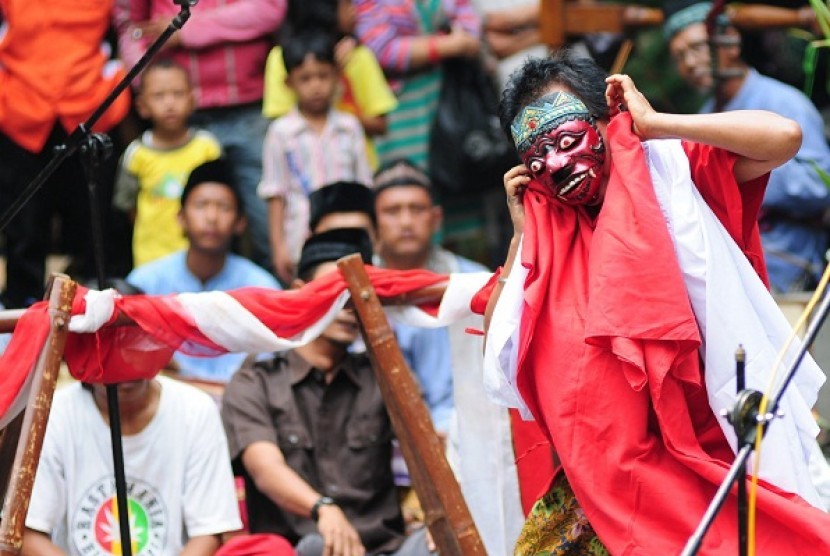An Ethnic group in Jakarta or popular known as Betawi, is culturally rich. Sadly, the richness is threatened to extinct due to urbanization and globalization. One out of many dying arts is Topeng Blantek (Blantek mask –Ed).
Delivering social critics through humor, this show emerged in the outskirt of Jakarta on the early 20s. The name 'Topeng Blantek' came from Chinese language. 'Topeng' means play, while 'blantek' is the sound of the accompanying music, which seems to be 'blang-blang trek'.
Another story says 'blantek' came from English language, blind text or without script. Topeng Blantek was indeed played without script. The director only gave the players the outline of the story.
Topeng Blantek play usually presents other arts, such as Jantuk Mask as the prologue and epilogue. Jantuk mask resembles Semar (a character in Javanese mythology) face. Semar is seen as a wise man. Before the play started, the audience is entertained by Obor Dance, Blenggo Dance, and Narotor Dance.
Unfortunately, this genuine art of Betawi deceases when other Betawi arts, such as Gambang Kromong and Lenong, emerge. The artists of Blantek Mask have tried to resurrect the play, but now it is prone to extinction. Even, there are only two groups in Jakarta who play this Topeng Blantek. One of them is Pangker Group. The founder of this group, Usman, has died. It is now passed to his son, Bang Loli. This group has 22 actors and seven musicians.
Bang Loli deeply concerns the lack of government's attention towards the traditional play. Only some people who are still interested in watching Topeng Blantek. Even, Betawi Central Art in Setu Babakan only plays Topeng Blantek twice a year.
Bang Loli hopes against hopes that the government pay more attention to this art. "This art genuinely belongs to Betawi," he said.


